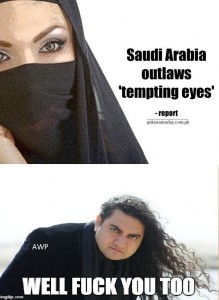A version of this post originally appeared as a comment in a certain secret apostate group on Facebook.
I left Islam publicly and officially in late summer of 2006. While I don’t regret the move, I wish I had known at least some of what I know now. I currently benefit from hindsight enough to comfort, maybe even actually advise, my younger self or others in a similar position.
Here is a very specific list of Things I Did, divided into Helped and Didn’t Help.
Warning: If you’re anything like me, the first thing that did help is going to annoy you. Continue reading “Advice for the Newly-Apostized (or My Past Self)”


